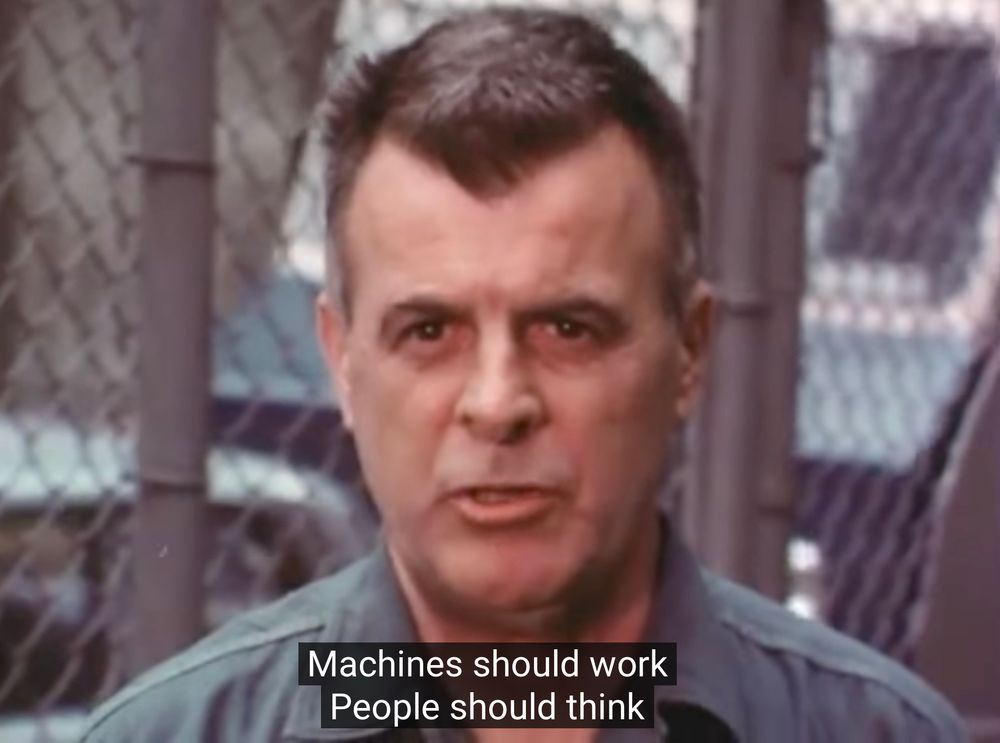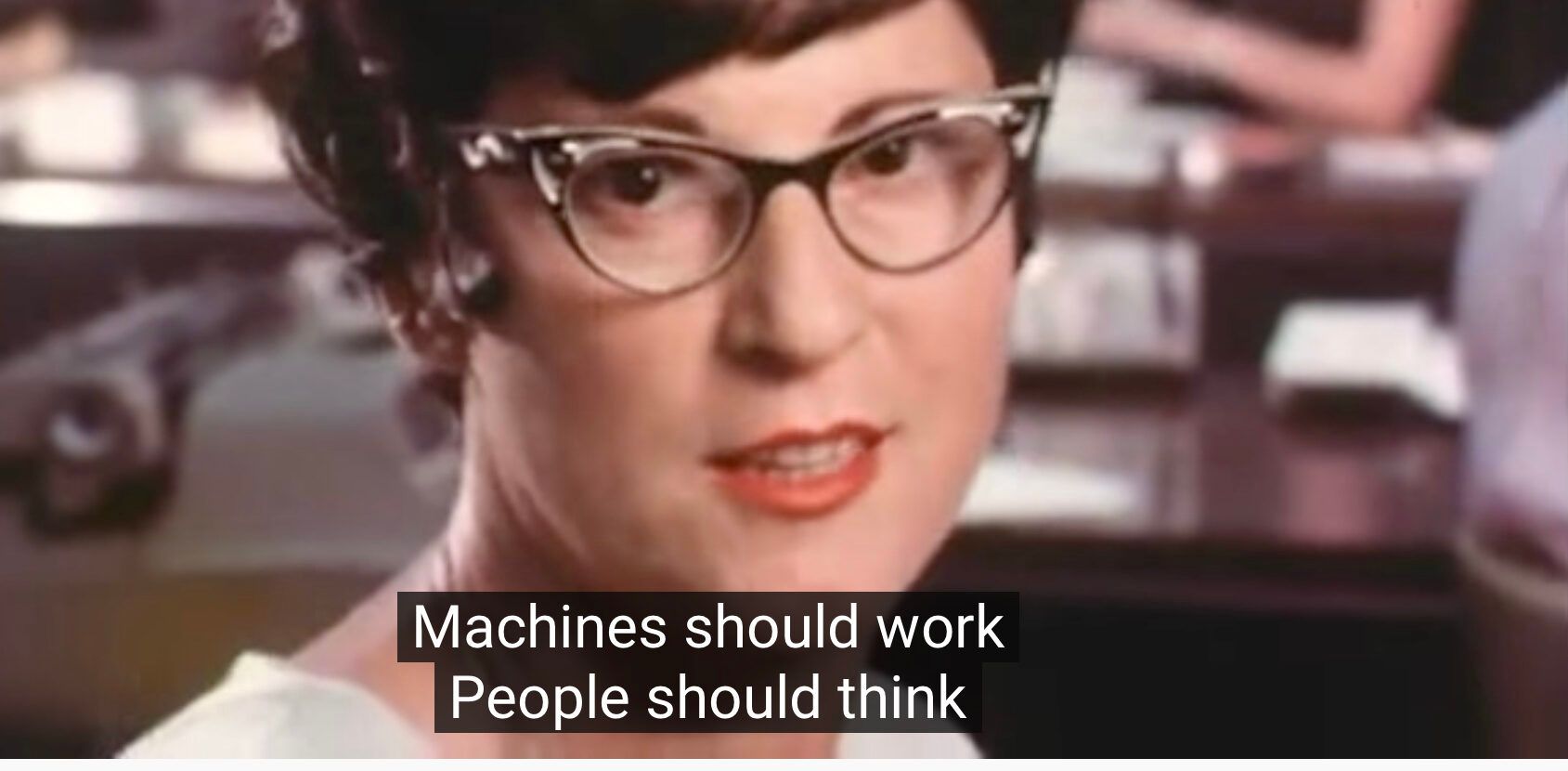To give your customers the best experience online you need to work out how to use technology to free up your time to really focus on giving people what they want, says Pix.
What connects IBM, DJ Fatboy Slim, and The Muppets? (If you get it, I’d love to have you on a quiz team.) The answer is the line, “Machines can do the work; so that people have time to think.”
It comes from an IBM advertisement in 1967. The man behind the ad was Jim Henson — who went on to the more serious job of creating The Muppets. The line repeated throughout the ad has been widely sampled by musicians, including Fatboy Slim, Queen, and junglists Dom and Roland. I’ve gathered a playlist here. Although Spotify misses my favorite, “Machines” by Aussie electronica duo B(if)tek.
IBM promised us that machines would free humans of repetitive, dull work so we could focus on creative thought — but as people move online, the promise has been forgotten. If we’re to create great e-commerce we have to remember the distinction.
Humans can do a sort of work that (so far) no computer can emulate — they can understand and answer the question “why?” Machines (computers) can do another sort of work far better than any human, they can endlessly follow the process “if…then”.
When a customer buys your wine, it’s polite to see if they liked it and tell them a bit more about it, or let customers know you have a new vintage of it. Humans know why this is important but sending a follow-up email, attaching a tasting note, and remembering to send vintage updates are all “if… then” problems.
You are far better off giving those jobs to a machine. Like Zapier. You tell Zapier (by creating a “Zap”) “if someone buys a wine, send a follow-up email”. Or “If they bought wine x, then send tasting note y.” Or “If they bought the 2019, then email them when we get the 2020”. While Zapier does this, you the human are thinking of all the other distinctively human ways you could improve your customers’ experience. You understand the why.
All about the human experience
The secret of great e-commerce is not technology. It’s not the best platform or even the most complex algorithms. The secret is “digitizing the human experience.” You use great platforms, and complex algorithms to move from the interactions you’d have one-to-one in-store, in person, to interactions you can have one-to-many online. We can do this because the computer does all the “if… then” jobs behind the scenes. What makes it worth doing in the first place is when you create genuine human delight throughout the process.
When a customer comes into your shop, you don’t start telling them your wines in regional or alphabetical order — you tell them your favorites. Only you as a human can do that. At Pix, we ask Master Sommeliers, regional specialists, and our own team to do this. Humans, not machines, explain what they like and why. You can do the same.

In a shop, when someone comes in having bought a wine the previous week, you’ll ask if they liked it. You know why that matters — it’s “a human thing” it shows you care. Online, a machine can help you make sure you always check. They turn a human “why” into a machine “if… then”.
When you taste a new wine, your palette instantly thinks of other similar wines, even if the wines seem entirely unrelated. A computer lets you tell everyone who’s bought those other wines that they might like this too. At Pix, we quickly realized we couldn’t encode these relationships. We needed humans — so we recruited from the Napa Valley Wine Academy. They are better than any machine at making these very human assessments.
As you look at your e-commerce experience, ask yourself what is an “if… then” and what is a “why” question. Look into automation apps (like Zapier) and let machines do the work, so you have the time to think and delight your customers.
- You can find our for yourself what Pix, the new online wine discovery site, is all about at its website here.
































